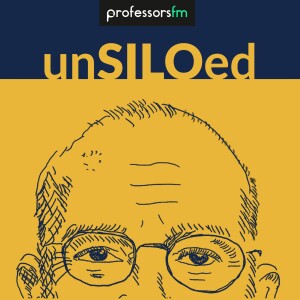
César Hidalgo is the director of the Center for Collective Learning at the University of Toulouse, known for his contributions to economic complexity, data visualization, and applied artificial intelligence.
His books include “How Humans Judge Machines,” and “Why Information Grows: The Evolution of Order, from Atoms to Economies.”
César joins Greg to discuss knowledge vs know how, Services vs products, backlash against algorithmic bias and keeping entropy at bay.
Episode Quotes:Judging humans vs machines:
We find that there is something more, that people use a different moral philosophy to judge humans and to judge machines. We judge humans with a moral philosophy that is based on what the person was trying to do, it's about intention, motivation. And we judge machines with a moral philosophy that is consequentialist. What is the outcome of the scenario? We don't care if the machine was trying to do the right thing, or was trying to rescue the people, or was trying to avoid the accident.
The gist of his work as a physicist:
That's one of the things that I think as a physicist, I help bring maybe through the book to a more general audience which is, people tend to think of information as something that is non physical. But in some way, everything has to have some sort of physical embodiment.
Transferring knowledge:
As our society becomes more of a knowledge society, even the forces of inequality become larger because few people can create things that are so scalable, so productive, that they can be exported to everywhere with very small transportation cost.
Products vs. services:
Products are not just one thing here or there in the economy. They are actually something that is really key. It's very different from a service because it has that scalable property of being able to endow others with the practical uses of knowledge that otherwise would be trapped in a small team.
Thoughts on his career path:
I like to say life is too short to have one career. And it sounds counterintuitive but since life is short, you want to try a lot of things because you get only one life. And in that context, I've loved exploring different things and going deep into different topics at different stages in my life.
Guest Profile:
- Faculty Profile at University of Toulouse
- César Hidalgo’s Website
- César Hidalgo on Linkedin
- César Hidalgo on Twitter
- César Hidalgo on TED Talk
His work:
- César Hidalgo on Google Scholar
- How Humans Judge Machines
- Why Information Grows: The Evolution of Order, from Atoms to Economies
- The Atlas of Economic Complexity: Mapping Paths to Prosperity
More Episodes
Create your
podcast in
minutes
- Full-featured podcast site
- Unlimited storage and bandwidth
- Comprehensive podcast stats
- Distribute to Apple Podcasts, Spotify, and more
- Make money with your podcast
It is Free
- Privacy Policy
- Cookie Policy
- Terms of Use
- Consent Preferences
- Copyright © 2015-2024 Podbean.com







